Feature image via NBC.
It can be easy to forget that classical Newtonian physics structures the way we understand the world. It stipulates a deterministic and rational interpretation that many feel is outdated in today’s unpredictable and complex times. We are beginning to question if we have outgrown the methods we use to understand, relate to, navigate, and enact change within our world, and look for alternative methodologies for doing so. A growing number of social scientists from fields as diverse as journalism, philosophy, ethics, political science and international relations are drawn to the potential for quantum theory to provide a lens better suited to our time’s unique character.
Project Q brings together many of the leading, most innovative minds in the quantum social sciences. Here are just a few.
Steve Fuller (Auguste Comte Chair of Social Epistemology at the University of Warwick)
Steve Fuller’s background covers the history, philosophy and sociology of science. Fuller touts the value of using a quantum interpretation for understanding social phenomenon and systems that tend to confound political scientists, such as voting in referenda. He argues that quantum presents us with a more apt model of reality as a probabilistic space, taking from the concept of quantum’s wave function behaviour.
A Quantum Leap for Social Theory, 2018 Journal for the Theory of Social Behaviour
Elsa Kania (Adjunct Fellow, the Center for a New American Security)
Elsa Kania is a specialist in Chinese defence innovation in emerging technologies, including quantum accelerated machine learning. Her work, critical to an understanding of the current geopolitical landscape of quantum technological development, probes Chinese media sources to provide an overview of China’s defensive quantum ambitions. Kania’s work serves to inform both policy and our understanding of a global quantum future from a military perspective.
Quantum Hegemony? China’s Ambitions and the Challenge to U.S. Innovation Leadership, 2018 Centre for New American Security
Parag Khanna (Founder and Managing partner of FutureMap)
Parag Khanna uses a quantum theoretical framework to explain global society’s complex and interconnected systems. Khanna draws parallels between how the quantum mechanical world works on an entangled, micro level to investigate contemporary international relations, world politics and the global economy on a macro scale. He argues that we have moved beyond a classical model of the world and toward a quantum perspective, which better equips us to describe and navigate complex and unpredictable global phenomena and relationships.
Want to understand how Trump happened? Study quantum physics, 2016 Quartz
Jon Lindsay (Director of the Trudeau Center for Peace, Conflict and Justice at the Munk School of Global Affairs at the University of Toronto)
Jon Lindsay is a scholar of technology and security whose work looks at narratives of strategic consequence of the quantum revolution. His approach is based on his background in cybersecurity and strategic narratives of information technology and their effect on military performance, politics, and international relations. Lindsay’s research highlights how social and strategic interactions play a fundamental role in defining technological advantages.
Demystifying the Quantum Threat: Infrastructure, Institutions, and Intelligence Advantage, 2020 Security Studies
Alyssa Ney (Professor of Philosophy, UC Davis)
Alyssa Ney is a philosopher of physics whose research focuses on the interpretation of quantum theories and questions about the unity of science. Her work on the wave function uses a realist framework to interrogate what sort of metaphysical and epistemological implications we can assume from the wave function that quantum theory describes.
The World in the Wave Function, 2020 Oxford University Press
Karen O’Brien (Professor of Sociology and Human Geography, University of Oslo and Co-founder of cCHANGE)
Karen O’Brien is an international expert on climate change impacts, vulnerability and adaptation. Her work investigates how climate change will impact human security and how human society can approach it as an adaptive challenge. She argues that a quantum paradigm shift is a necessary part of our transformation to sustainability, as it can provide us with tools for understanding our own agency and relationship to nature, in ways that a classical interpretation of the world does not.
Climate change and social transformations: is it time for a quantum leap?
John Phillip Santos (Writer, journalist and documentary filmmaker, Honors College at the University of Texas San Antonio)
John Phillip Santos uses quantum theory and cosmology to inform narratives around migratory and diasporic experiences. He applies this framework to exploring how his family stories “situate themselves in the framework of a much deeper understanding of the nature of reality” set within deep time of the history of the planet, the cosmos and the solar system itself. Using this lens, Santos’ memoirs contextualise his own genealogy against the backdrop of a quantum time map.
Places Left Unfinished at the Time of Creation, 2000 Penguin Books
The Farthest Home Is in an Empire of Fire, 2010 Penguin Books
Laura Zanotti (Professor of Political Science, Virginia Tech)
Laura Zanotti’s research investigates how the adoption of a quantum entanglement ontology can open up different ways of looking at reality and enable us to explore how we are actors in the world and how we may change it. Her most recent book, Ontological Entanglements, Agency and Ethics in International Relations – Exploring the Crossroads, addresses the implications of embracing quantum physics’ entangled ontology for International Relations conceptualizations of agency and ethics.
Ontological Entanglements, Agency and Ethics in International Relations – Exploring the Crossroads, 2019 Routledge
Frank Smith, III (Director, Cyber & Innovation Policy Institute, the U.S. Naval War College)
Frank Smith’s research and teaching explores the relationship between technology and security. His quantum-focused research examines the potential impact of quantum technologies on international relations, with a special focus on how the hype around quantum technologies seeds ideas that can have a major impact on national security policy. Frank Smith’s research is interdisciplinary, combining security studies with science and technology studies.
Quantum technology hype and national security, 2020 Security Dialogue
Jairus Grove (Assistant Professor of International Relations, Department of Political Science at the University of Hawai’i at Manoa)
Jairus Grove explores intersections of quantum physics and philosophy. He argues that the crisis presented by quantum physics to the 19th century was not confined to the realm of the natural sciences but extends to other areas that help us understand the world around us, such as philosophy and social theory. He uses this quantum lens to expound, in particular, how terrorist groups can have a profound global impact beyond their immediate capacity.
Spooky action is closer than you think, 2016, ABC’s The Philosopher’s Zone
Curious to learn more? Check out our interviews with other Q Symposia participants here.


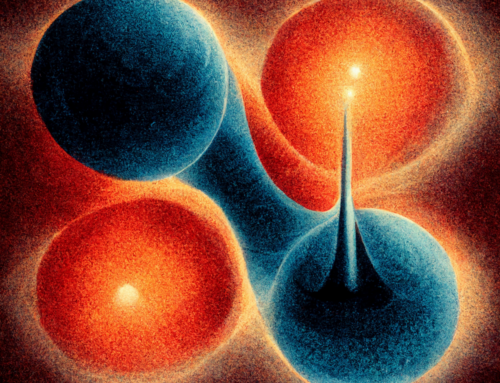
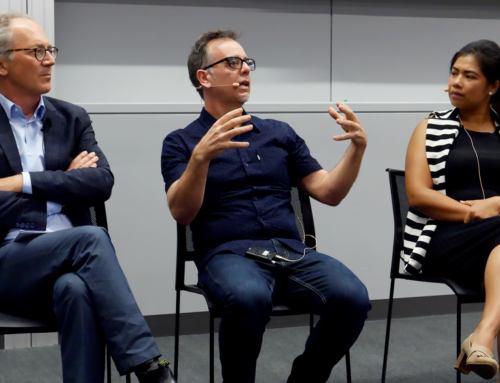
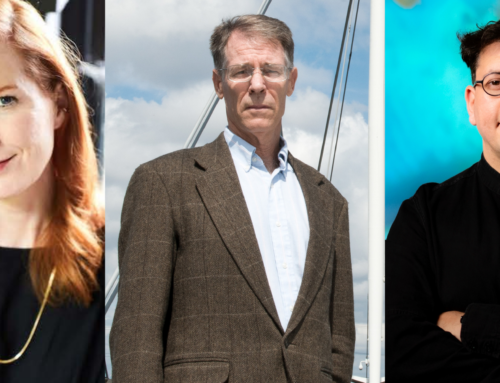
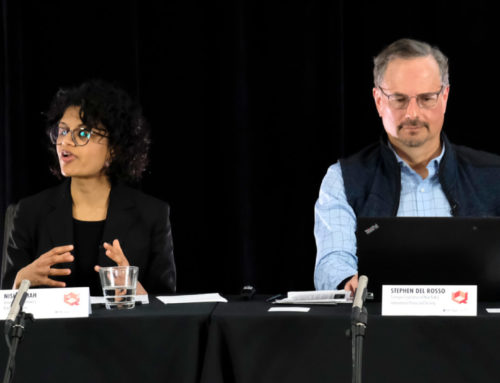
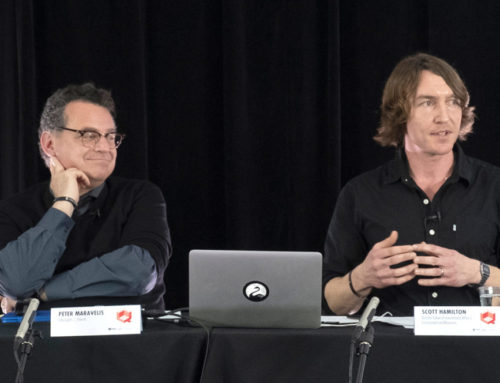
Leave a Reply